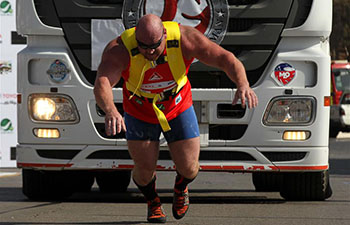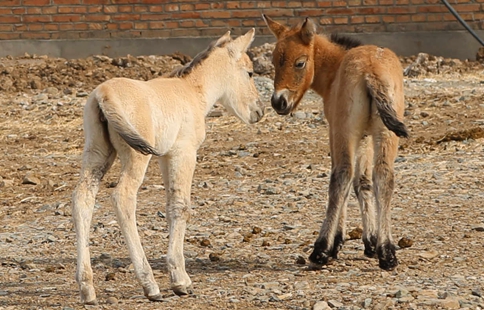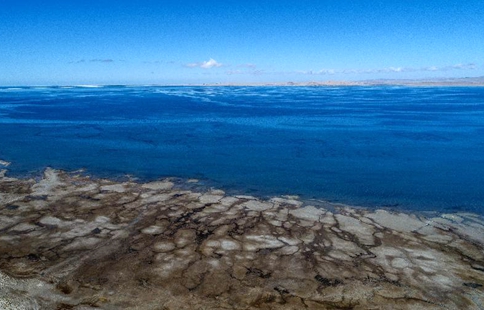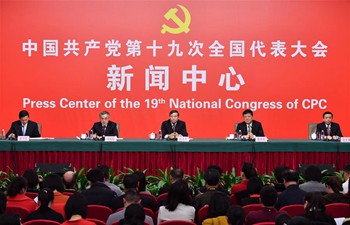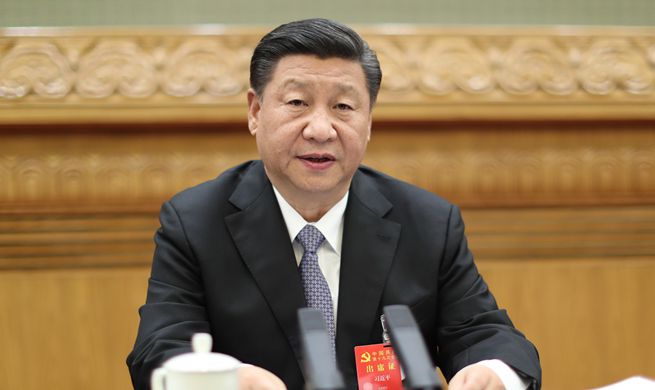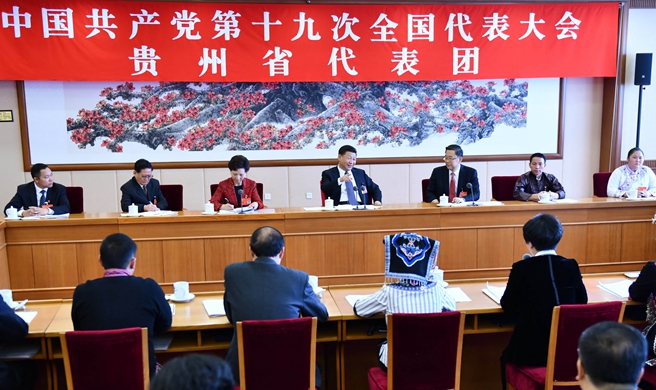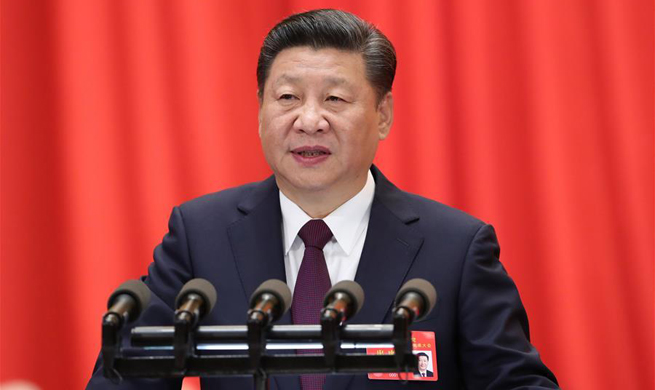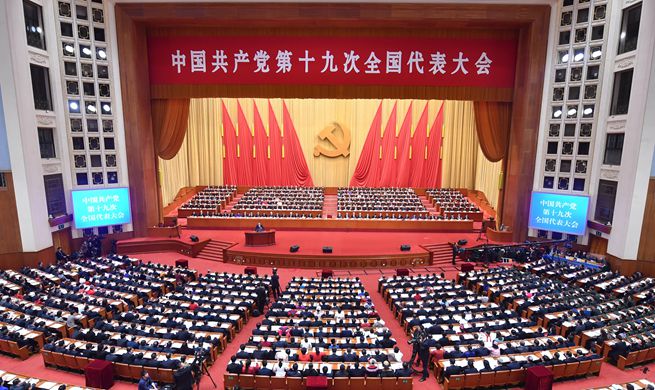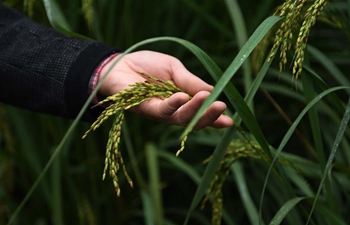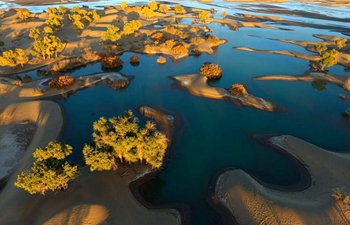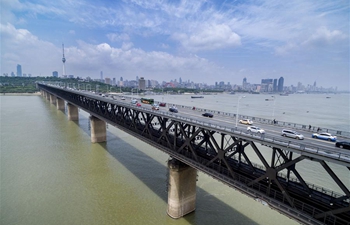by Maria Vasileiou
THE HAGUE, Oct. 20 (Xinhua) --- The incoming Dutch government will focus on moving common European approaches forward in key policy areas including migration and defense, but will not push for deeper European Union (EU) integration, experts say.
"The largest part of the coalition agreement focuses, unsurprisingly, on migration and refugees, putting an emphasis on effectiveness, while calling for stronger European cooperation in protecting the EU's external borders and developing a full-fledged European asylum policy," Joris Larik, senior researcher at The Hague Institute for Global Justice, told Xinhua.
Immigration was a defining issue during the 209-day talks to forge the four-party government comprised of rightist liberal People's Party for Freedom and Democracy (VVD), the progressive liberal Democrats 66 (D66) and the conservative parties the Christian Democratic Appeal (CDA) and the Christian Union (ChristenUnie).
The issue, pushed to the forefront by Geert Wilders, leader of the far-right populist Freedom Party (PVV), also dominated the debate during the March legislative elections campaign. Wilders called for an end to immigration from Islamic countries. His party won 20 seats in the 150-seat lower house of parliament, but all other main parties refused to govern with him.
In the coalition deal, the four governing parties pledged "a human, effective policy on migration and integration at both national and EU level, a policy that will encompass tackling the causes of refugee flows, improving reception in the region, accepting refugees in accordance with international agreements and combating irregular migration."
To sum up, the Dutch government's plan on migration is that "those who can stay have to participate fast" and "those who cannot stay have to leave fast," said Larik.
On refugee policy, the coalition stresses creating "safe third countries" in the same region where refugees have been forced to flee. It calls for "long-term investment in political and economic cooperation with the countries in question through development cooperation in addition to emergency assistance."
"The aim is to strike agreements similar to the one between the EU and Turkey in order to stem the flow of immigrants," said Paul Teule, a political economy lecturer at the University of Amsterdam (UvA).
Dutch Prime Minister Mark Rutte was on the frontline of the refugee deal between the EU and Turkey struck in March 2016 when the Netherlands held the rotating EU presidency. The deal sought to stem the flows of asylum-seekers and migrants crossing from Turkey's shores to Greece and from there to other EU member states.
"The Dutch new government is arguing for stronger European cooperation in protecting the EU's external borders and developing a full-fledged European asylum policy," said Larik.
EU member states are seeking common ground on reforming the EU asylum system, which broke down when more than a million migrants made their way to Europe two years ago.
"The new Dutch government is expected to follow a tough stance on promoting harmonization on asylum policies within the EU," commented Teule.
In the coalition deal, it is stated that "the level of protection offered and the framework for asylum procedures should be the same in all EU member states," he explained.
Currently, the European asylum system rules that the first country through which a person enters the EU must handle his or her asylum request.
Southern European countries, like Italy and Greece, say the mandate puts too much burden on them. They have called for a new system which would automatically allow for the transfer of immigrants from their countries to other EU countries during periods of high immigration.
Eastern EU countries like Poland and Hungary have refused to admit immigrants, while countries like Germany and the Netherlands argue that more of the burden must be shared among all EU member states.
A common asylum system was discussed among the 28 European leaders in Brussels on Thursday. Following the discussion, Donald Tusk, president of the European Council said EU leaders would discuss the issue again in December and were aiming for an agreement by mid-2018.
The Netherlands also plans to follow a tough stance towards countries which fail to comply with EU decisions such as the relocation scheme. The coalition deal states that EU member states that do not contribute their "fair share" in this area should have their European subsidies cut.
On defense, the Dutch government pledges to spend an additional 1.5 billion euros (1.8 billion U.S. dollars) per year. "This seems to be in line with the developments in Europe, the NATO and the U.S. president's demand for increased spending on defense," commented Ben Crum, professor of political theory at VU (Vrije Universiteit) University Amsterdam.
"However, with currently 1.17 percent of its GDP spent on defense, there is still a long way to go for the Netherlands towards the agreed target of 2.0 percent among NATO members," said Larik.
According to the coalition agreement, the country's defense budget will be over 10 billion euros in 2021, but meeting the NATO requirement means it should be about 16 billion euros.
"The new government's commitment to enhanced coordination and collaboration in defense matters at the European level can be seen as support for proposals currently under development in the EU, including a European defence fund and permanent structured cooperation among a core group of member states in the area of security and defense," said Larik.
European leaders are expected to take further decisions on these issues during the December 2017 European summit.
On the subject of deepening the economic and monetary union, which is high on the agenda at the EU level, the Dutch coalition agreement is not in line with pro-integration trends put forward by French President Emanuel Macron and European Commission President Jean-Claude Juncker.
Macron favors a "radical reform" of Europe and calls for a eurozone budget that would finance investments and stabilize the European economy during crises. The Dutch coalition agreement, however, says "the joint financing of the debts of EU member states is undesirable."
It states that "no further steps should be taken towards a transfer union, whether through the introduction of Eurobonds (or forms thereof) or otherwise," while stressing that "all member states must fulfil their responsibilities, and must not be allowed to shift the negative impact of their policies onto other countries."
In addition, the coalition deals states that although issues like migration call for a more active approach on the part of the EU, in other areas, the EU has laid down rules that needlessly curtail member states' own responsibility.




